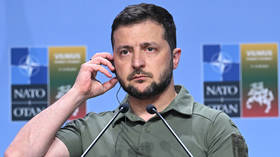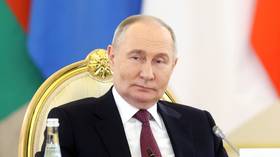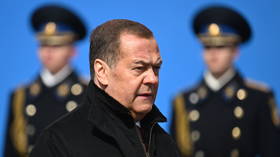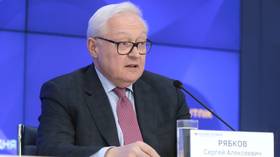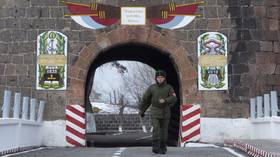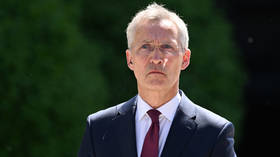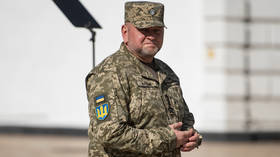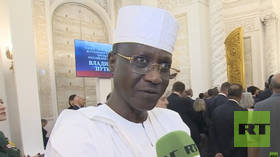Pavel Kalmychek: Why Russia and Africa is a natural partnership
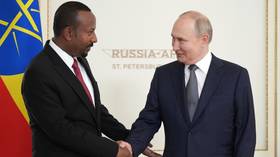
Russia is keen to listen to the needs of Africans and to build relations on the principle of ‘development not at the expense of Africa, but with Africans’. This will be done in full knowledge that we are natural partners.
The situation surrounding Africa’s trade and economic development in recent decades has been characterized by increased attention of major players in the global economy on the continent’s future.
The ‘competition for Africa’ among global and regional powers is driven by the region’s significant economic growth potential, rich resource base, and growing consumer market.
Despite socio-economic challenges and political instability in a number of countries, Africa has the potential to become a major growth center for the global economy.
The Russian Ministry of Economic Development has coordinated intergovernmental dialogue with 18 African countries on Trade, Economic, Scientific and Technical Cooperation (IPC) – Algeria, Angola, Congo, Egypt, Ethiopia, Ghana, Guinea, Libya, Morocco, Mozambique, Namibia, Nigeria, South Africa, Sudan, Tanzania, Tunisia, Uganda, Zimbabwe, and Zambia.
In 2022, despite a challenging geopolitical environment, we held six IPC meetings – with Zimbabwe, Sudan, Congo, Algeria, Mozambique, and Ethiopia – as well as three online IPC Co-Chair meetings with Algeria, Ethiopia, and Tunisia.
In addition, the Russian Ministry of Economic Development is working to broaden the geographical scope of the IPC, in particular by establishing commissions with promising countries. An intergovernmental agreement to this effect was signed with Tanzania last December. The signing of similar deals with a number of other West and East African countries on the sidelines of the Second Russia-Africa Summit is being considered.
The Russian Ministry of Economic Development, together with the relevant agencies, has developed a roadmap for the implementation of measures necessary to increase Russian-African trade and economic and investment cooperation. The roadmap includes work in such sectors as industry, finance and banking, education, transport, agriculture and fisheries, health, information and communication technologies, and mass media.
The early 2000s can be described as having heralded a renaissance of Russian-African trade and economic relations after the decline of the 1990s. Between 2001 and 2011, two-way trade with Africa increased almost eightfold (from $1.6 billion to $12.1 billion). In the following decade, trade grew at a more modest rate: 1.5 times between 2011 and 2021 (from $12.2 billion to $17.7 billion).
In 2022, despite the restrictions imposed by unfriendly Western countries, we managed not only to maintain the volume of trade at the same level, but also to increase it to $17.9 billion.
In addition to the objective reasons for increasing cooperation with Africa as a fast-growing consumer market, this area is of strategic importance in the context of the transfer of Russian export capacities from sanctioned areas. In the context of the forced reduction of trade interaction with a number of Western countries, it is important to continue developing cooperation with our friendly partners, which undoubtedly includes the vast majority of African states.
Russia and the African continent are natural trade and economic partners. Supplies from Russia to the African market (whose structure is dominated by food and energy products) contribute to solving two major socio-economic problems that threaten Africa’s well-being – food insecurity and energy insecurity.
Beyond food and energy, Russia has much to offer our African partners. In particular, we look forward to increased supplies of domestic manufactured goods, machine tools, and vehicles.
Russia can become a major exporter of skills and technologies to Africa in a wide range of areas, including geology and subsoil use, efficient agriculture, digitalization, and nuclear and hydroelectric power generation.
As competition for Africa intensifies, the principles of building trade and economic relations with the countries of the continent become particularly important.
The memory of the Soviet Union’s role in liberation from colonial shackles and its support for subsequent development, as well as the positive image of modern Russia, give our country a huge potential for trust on the part of Africans, which it is in our mutual interest to work towards.
Despite friendly relations with most countries on the continent, Russia currently occupies a rather modest position in African countries’ imports and exports, far behind China, India, the US, and EU.
The main challenge for the foreseeable future is to give Russian-African relations a real economic aspect. In this respect, we see several tasks in the medium term.
A more balanced trade cooperation with Africa should be achieved. In 2022, Russian exports totaled $14.8 billion, while imports from Africa were only $3.1 billion. We remain open to proposals from African companies. In particular, we see growing demand for food products from Africa.
There is also a regional imbalance – six North African countries (out of 54 countries on the continent) accounted for more than 65% of trade in 2022. It is therefore necessary to intensify our trade cooperation with sub-Saharan Africa.
Another important challenge is to improve our knowledge of the nature and needs of African markets. This can be achieved by involving the expert community and business representatives who have successfully worked with African partners.
The refusal of many African countries to take part in the sanctions on Russia, in line with their own economic and political interests, once again confirms the friendliness of the continent’s countries and their desire to develop bilateral relations.
For its part, the Russian government is developing a comprehensive list of measures to support Russian exports to Africa, some of which will be presented to the public at the Russia-Africa Summit.
We can confidently say that the potential of Russian-African trade and economic relations is far from exhausted. We trust that the Second Summit and the Russia-Africa Economic and Humanitarian Forum will give a new impetus to Russian-African cooperation.
This piece was originally published by Valdai Discussion Club, translated and edited by the RT team


